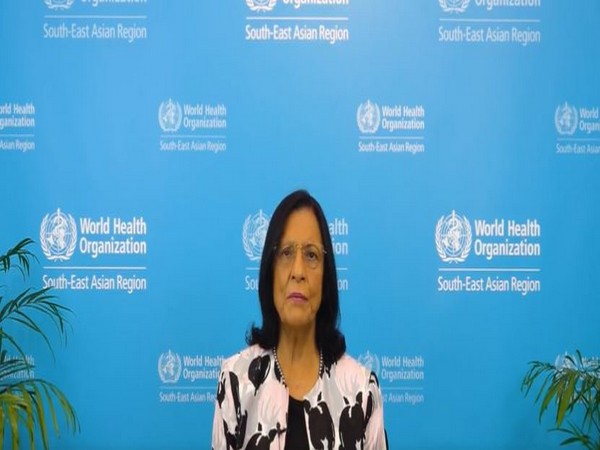New Delhi [India], November 18: As World Antimicrobial Awareness Week commenced on Saturday, WHO Regional Director for Southeast Asia Poonam Khetrapal Singh said that antimicrobial resistance (AMR) continues to pose a significant challenge to global public health and has a devastating impact on the efficacy of essential medicines and the ability to effectively treat infectious diseases.
In a statement, Poonam Khetrapal Singh stated, “Antimicrobial resistance (AMR) continues to pose a significant challenge to global public health, with devastating effects on the efficacy of essential medicines and the ability to effectively treat infectious diseases.”
She further stated, “Several factors, including a high population density, limited access to healthcare services, and the misuse and exploitation of antimicrobials, make the South-East Asia region particularly prone to this threat.”
In the statement, Singh noted that AMR is directly responsible for approximately 1.27 million deaths annually across the world, with current estimates placing the number of casualties in South Asia at 389 000. She warned that by 2050, 10 million fatalities will occur annually on a global scale if no action is taken now.
“If no action is taken now, it is estimated that by 2050, ten million fatalities will occur annually on a global scale, costing the global economy a total of one hundred trillion dollars,” Poonam Khetrapal Singh said.
“By 2050, according to a report by the World Bank, antimicrobial resistance will be responsible for a decrease of up to 3.8 per cent in global exports, a decrease of 7.5 per cent per year in livestock production, and an increase of USD 1 trillion in healthcare-related costs,” she added.
She noted that the Southeast Asia region has been taking proactive measures to combat AMR. She said, “In 2011, via the Jaipur Declaration on Antimicrobial Resistance, the health ministers of the region urged coordinated action against AMR. In 2014, the fight against AMR was elevated to Flagship Priority status. Since then, the World Health Organization (WHO) has been supporting Member States in the implementation of AMR national action plans (NAPs) more effectively.”
She stated that World Antimicrobial Awareness Week (WAAW) is commemorated with the aim of enhancing awareness and comprehension of AMR while promoting optimal practises among the public, multisector stakeholders, and policymakers.
She said that this year, the WAAW has been rebranded as World Antimicrobial Resistance Awareness Week by the Quadripartite organisations, which comprise the Food and Agriculture Organisation of the UN (FAO), the UN Environment Programme (UNEP), the World Health organisation (WHO), and the World Organization for Animal Health (WOAH).
In the statement, Poonam Khetrapal Singh said, “The inclusion of the term “resistance” in the acronym “AMR” more accurately characterizes the difficulty we address. The theme of this year’s World AMR Awareness Week (WAAW) remains “Preventing Antimicrobial Resistance Together”, as in 2022.”
She noted that this theme stresses the need for collective efforts across many sectors to promote the responsible utilization of antimicrobial agents and enhance preventive strategies aimed at combating AMR. She stated that the theme highlights the importance of adopting a collaborative approach based on the One Health framework.
She said, “One Health is the recognition and understanding that the health of humans, animals, and the environment are interconnected and interdependent. This holistic approach considers the health of all living beings and the ecosystems they inhabit as interconnected and mutually influencing.”
Poonam Khetrapal Singh called it imperative to foster collaboration among many sectors and stakeholders involved in the domains of human, terrestrial, and aquatic animal and plant health, as well as food and feed production and environmental conservation.
She stressed that it is imperative to strengthen multisectoral coordination, which facilitates the development and implementation of policies and regulations related to AMR. She noted that collaboration among different sectors allows for the alignment of policies, regulations, and guidelines, ensuring consistency and coherence in approaches across sectors.
Singh called preventing antimicrobial resistance a “collective effort,” which requires unwavering commitment and is not a responsibility that can be borne by any one individual, organisation, or country. She said, “We are at a critical juncture in our fight against AMR, and the choices we make today will profoundly affect the health and well-being of generations to come.”









































